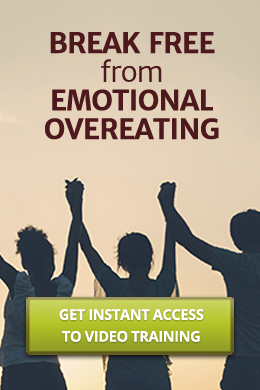How I got my Freedom from Binging and Purging
 I first realized I had a problem with food approximately 30 years ago. I remembered reading an article about a woman (Boone, Pat) a famous young woman who had a problem with bulimia. She ate and then threw up. Her family was very concerned about it. Attention! Well I decided to try it. The overeating and vomiting was not very appealing, so I tried just not eating. I began exercising more than usual, and then 200 sit-ups, and 200 jumping jacks every night before bed. Well-it sure worked. I was elated. I lost weight and felt great. –for a short while. My parents became concerned and commented on how thin I was becoming i.e.; attention. It didn’t matter to me that it was hurting my body; I just knew I got what I was looking for –attention.
I first realized I had a problem with food approximately 30 years ago. I remembered reading an article about a woman (Boone, Pat) a famous young woman who had a problem with bulimia. She ate and then threw up. Her family was very concerned about it. Attention! Well I decided to try it. The overeating and vomiting was not very appealing, so I tried just not eating. I began exercising more than usual, and then 200 sit-ups, and 200 jumping jacks every night before bed. Well-it sure worked. I was elated. I lost weight and felt great. –for a short while. My parents became concerned and commented on how thin I was becoming i.e.; attention. It didn’t matter to me that it was hurting my body; I just knew I got what I was looking for –attention.
Having four brother and two sisters, the attention was spread thin in our home. I grew up the sixth child. My siblings were all very athletically gifted. My father was as well. Our home was all about sports, 100% teams, games, and trophies. I on the hand am not athletically gifted. I spend most of my adolescents trying out for various teams, always to making it to the final cut (because of my last name). I worked very hard at my school work and carried an A+ average through high school. I realized early on that the grades didn’t matter as much as the sports. At ten years old always being “the baby girl”, my mom got pregnant and my little sister was born. I think that really went through me. I had no athletic talent, but after all I was “the baby”, it’s an odd thing to look back at your life so clearly. Today my little sister is my dearest closet friend in the world. She is the one who urged me to seek help for my eating disorder. She is the one in my family I can talk to about all this,-my weaknesses, my sessions with Lauren, etc.
I would bounce back and forth with bulimia through Junior High and High School. I would pig out with girlfriends, and then vomit when I got home. Not a daily event, not yet! I left home at 17 and the cycle really kicked in. I remember coming home for a visit weighing approximately 95lbs. I’m 5’5” so that’s pretty thin. All I knew was it was great to get attention.
The feelings surrounding the behavior were shame, guilt, helplessness, failure, and being out of control. I remember going to visit family and or friends and feeling awful it there weren’t my snacks out. I would avoid get-togethers because I’d have to control my eating. I sure missed out on a lot. I’ve tried numerous diets in my 30+ years with this disorder, low calorie, no food at all, juicing. I never joined any weight loss programs, mainly because on “the outside” I looked healthy. It was “the inside” that was all messed up. People use to always ask me how do you stay so slim. Huh-if they only knew.
I sometimes joked that my sister, remembering back when she was in high school. She was athletic and larger so my mom took her to Weight Watchers. The irony was I was 26, in full out of control bulimia vomiting 6-7x a day and purchasing huge amounts of food, gorging and then vomiting.
How I got my Freedom from Binging and Purging
My life has improved greatly since becoming part of the Hungry Heart program. I’m not afraid of food anymore. I can enjoy my daily life and look forward to the future. I can be open about my past eating disorder and hopefully be able to help someone else with my honesty. I feel strong about myself worth and inner strength. This program has opened up a whole new world for me. I can actually enjoy my food, knowing that I am nurturing myself and loving myself by doing so. I’ve been able to better enjoy all the aspects of my life. My energy level is higher. I sleep more restfully. I have discontinued taking antidepressants. Life is pretty great!

